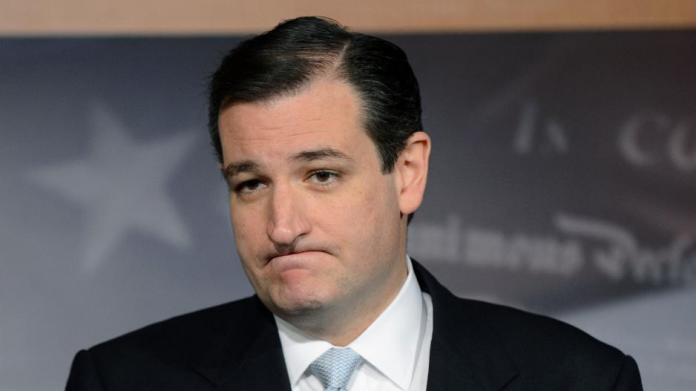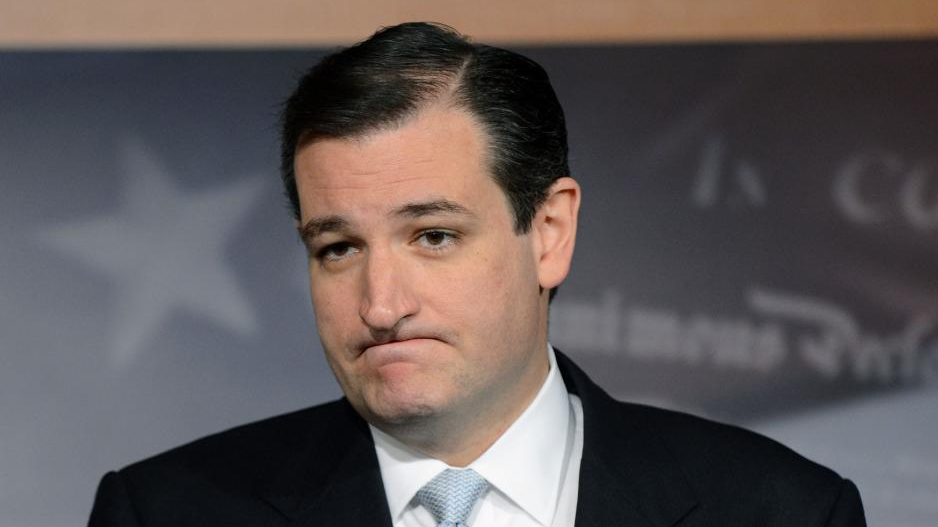
The young Ted Cruz was exactly the kind of dynamic attorney that, on paper, any influential law firm would have hired. He was a Princeton graduate, editor of the Harvard Law Review, and a clerk for William Rehnquist, the then-chief justice of the U.S. Supreme Court.
So Cruz’s application at Gibson Dunn’s appellate division in Washington, a firm eager to hire clerks from any of the court’s conservative justices, should have been a slam dunk.
But Cruz never got an offer. Why? Several of his former classmates who had applied at the prestigious firm made clear it was either them or him, according to two sources with knowledge of the decision. “No one wanted wanted to work with him,” said one attorney, who was part of the deliberations and requested anonymity to speak about the private hiring process. “It was a big red flag, and shows that his personality problems were long before the Senate.”
Now, Cruz’s gift for turning people against him may be the greatest obstacle to his current job application. With Donald Trump’s presidential campaign bruised after a brutal loss in Wisconsin, anti-Trump Republicans are beginning to realize that their last chance for a white knight may be Cruz, who, for many, is the original nightmare candidate.
These strategists believe that, while the party may lose the presidency and the Senate with Cruz as the nominee, they’ll be in a better position to hold on to the House, re-elect their incumbent governors and protect their state legislative majorities. By this logic, he is a way to avoid the existential threat to the party posed by Trump’s outsider campaign.
“There is a positive way to look at losing the White House this year,” Sam Geduldig, a Washington lobbyist and Republican fundraiser, said when asked about polls showing Cruz losing to Clinton. “In 2008, we were dead-to-rights, but made up ground in 2010 and now we have the largest House majority since Herbert Hoover. We can make up a lot of ground running against Hillary Clinton in 2018.”
Still, Cruz’s road ahead is a long one. He trails Trump in the delegate count, and faces long odds in the April 19 contest in New York. Conservative commentator Pat Buchanan said in an interview that if Cruz finishes third in the Empire State’s primary next week, it may blunt any momentum he picked up in Wisconsin.
And if somehow Cruz was able to win the nomination-his best shot at this point is probably winning a floor fight at the Republican National Convention in July-it’s difficult for many Republican strategists to see what states Cruz would win that Mitt Romney, the party’s last nominee, lost in 2012.
The Texas senator has alienated potential allies at practically every stop along his career, and, as a first-term senator, attached himself to a litany of far-right positions-favoring a consumption tax, supporting mass deportation, opposing abortions for rape or incest victims-that Democrats have used to motivate their own base and turn off independent voters.
But it’s easier for many to imagine him keeping them close enough, by motivating the base, so that winnable House races stay in the GOP column.
In the mid-term elections two years ago, much like President Barack Obama, Cruz was shoved to the sidelines in Senate races in traditionally purple states, where moderate or independent voters could make the difference in their election. Instead, he was in high demand with Senate candidates in Georgia and Kansas, deeply red states where Republicans needed a strong turnout from their base to fend off challengers.
In Cruz’s own state, fellow Sen. John Cornyn has refused to endorse him, and the two haven’t talked since Texas’s primary on March 1. Jesse Benton, the former campaign manger for Senate Majority Leader Mitch McConnell, is running a pro-Trump super-PAC.


